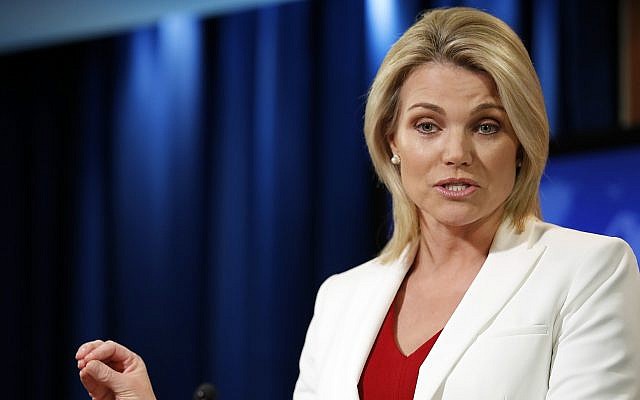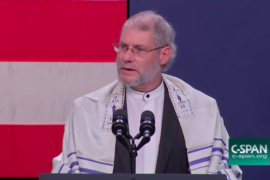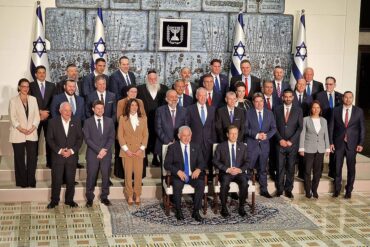The United States on Thursday rejected reports that President Donald Trump’s plan for the region has been delayed.
State Department spokeswoman Heather Nauert was asked during her daily press briefing on Thursday whether the plan, being crafted by Trump’s Middle East envoy Jason Greenblatt, US Ambassador to Israel David Friedman and the president’s advisor and son-in-law Jared Kushner, was being pushed back.
“We have not unveiled the peace plan at this time. That will be unveiled by Mr. Kushner and Mr. Greenblatt when it is ready. And when it’s ready to be unveiled, they will unveil it,” Nauert said.
Earlier this week, it was reported that the Trump administration’s plan would demand difficult compromises from both Israelis and Palestinians.
Israeli Defense Minister Avigdor Lieberman (Yisrael Beiteinu) returned from a trip to Washington in May with reports that the Trump plan would call for partitioning the country into two states and internationalizing Jerusalem’s Old City.
Since then, many right-wing Jewish figures have rushed to Trump’s defense by claiming the reports to be fabricated. But based on over half a century of experience, it would make sense to err on the side of caution and assume that any US administration, whether Republican or Democrat, would seek to partition the country into two states, each dependent upon American power for survival.
Even if the Trump plan has not yet been finalized, the rumors should be viewed as a test balloon on Washington’s behalf, which would mean that the Jewish reaction to the news – whether fake or not – could determine how far Trump’s team feels it can push Jerusalem without losing domestic Jewish support.
Rather than rushing to defend Trump and dismiss reports of his regional agenda as fabricated, those who would be troubled by the notion of his administration forcing partition on Israel should be expressing their outrage as aggressively as possible.
Some deniers of the report have claimed it unlikely that Greenblatt or Friedman would support partitioning the country, given their personal views and histories with Jewish communities that would be threatened with destruction by such a plan. But like most pro-Israel American Jews opposed to the two-state solution, neither Greenblatt nor Friedman are likely to have any realistic alternatives to suggest, and their personal opposition to partition is likely weaker than their desires to keep their jobs.
It’s therefore not a question of them wanting to push Israel into concessions but rather an issue of them being willing to push Israel in order to maintain and advance their own positions. Either way, those Jews opposed to the two-state solution would be well advised to loudly protest in order to display strong opposition before any plans are concretized or made public.
How Jews respond to rumors of American pressure to divide this land could determine the extent to which that pressure is applied. If all Greenblatt, Kushner and Friedman see from Israeli nationalists and the right-wing Jewish Diaspora community is blind support and understanding, they’ll be less likely to experience any significant pangs of conscience when pushing Israel to surrender the cradle of Jewish civilization.





